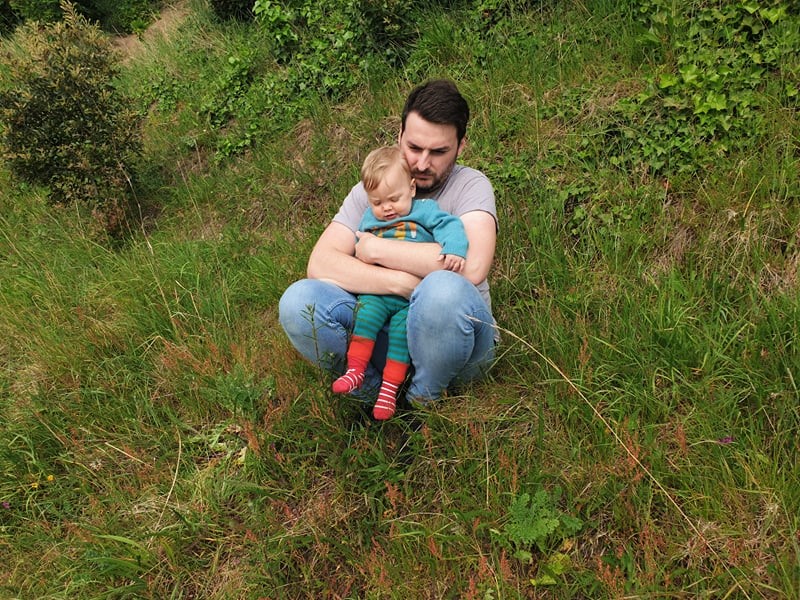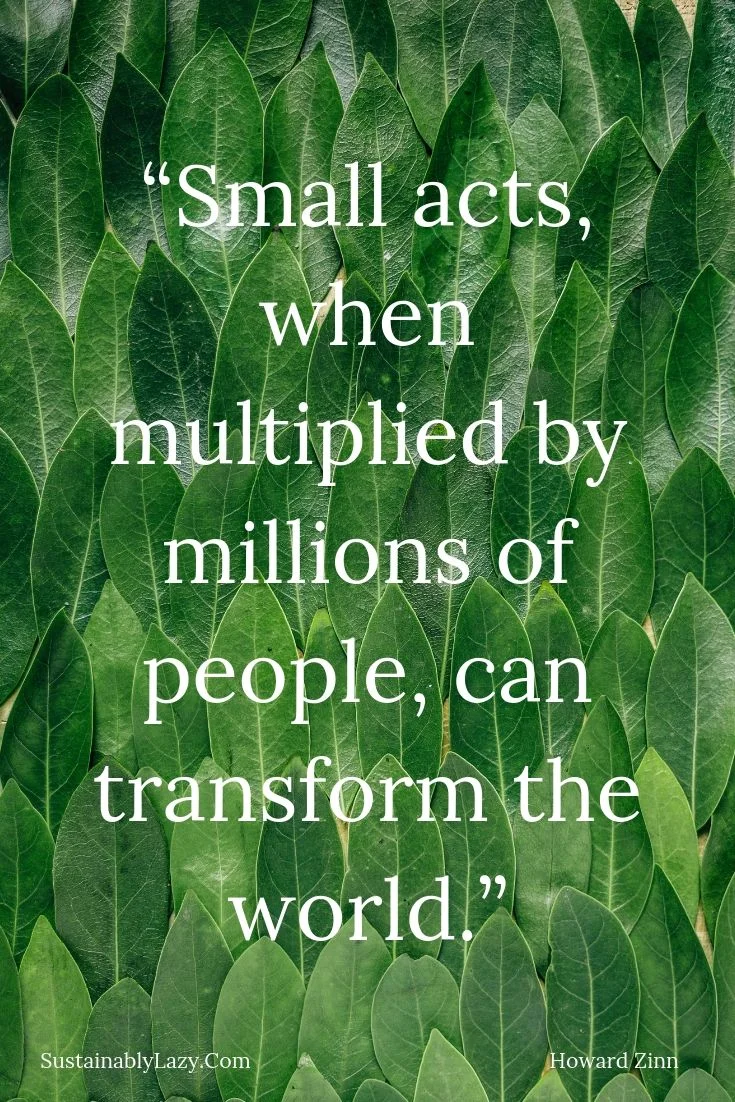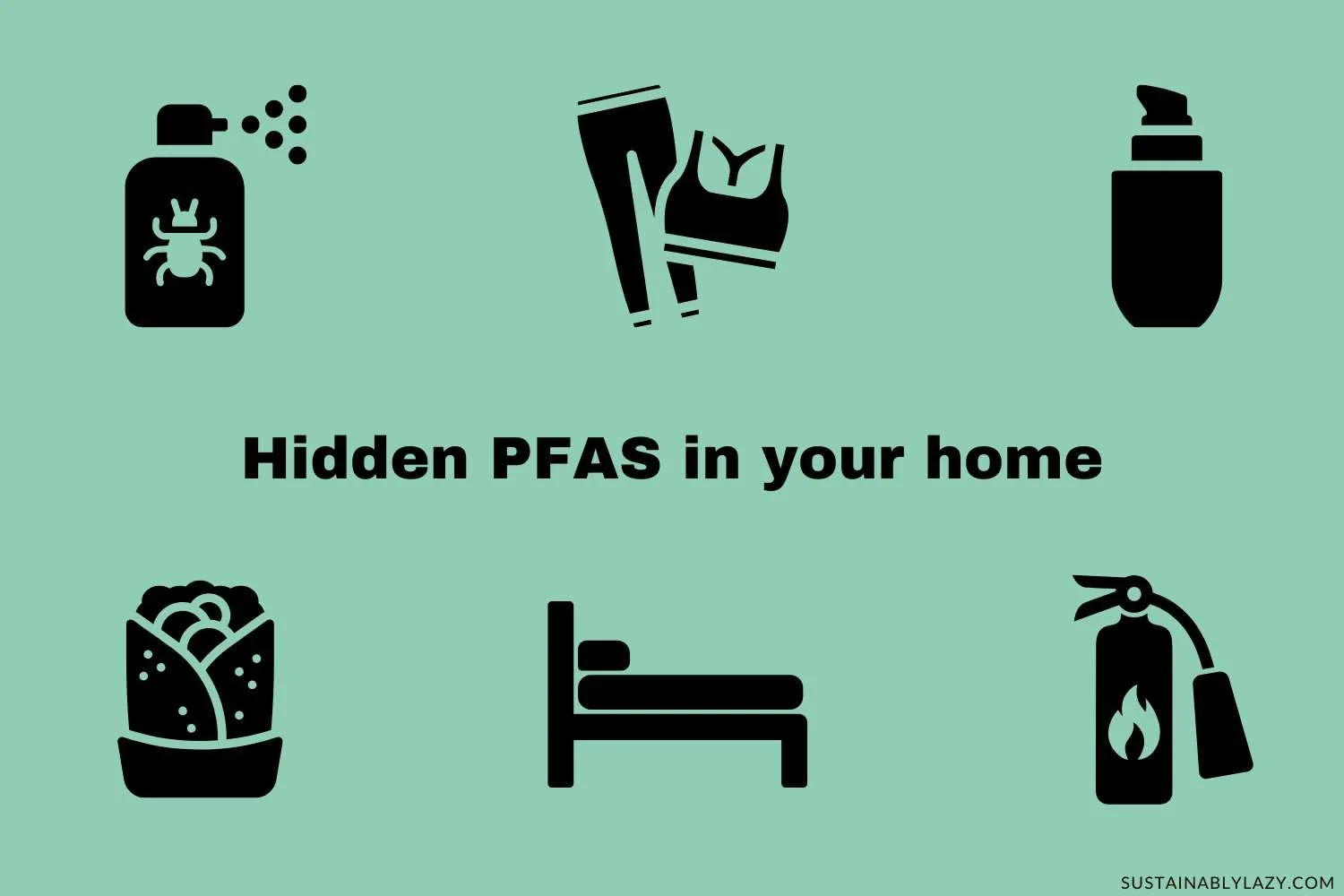12 Useful Tips For Coping With Eco-Anxiety
If your worries about climate change keep you up at night, you might be experiencing eco-anxiety. Here are my tips for coping with your mental health and some techniques for staying positive.
Eco-anxiety is a very real thing.
It is described as:
“a chronic fear of environmental doom”
The definition alone makes my chest feel tight!
If worrying about your children’s (or grandchildren’s) future is causing you a lot of distress, you’re not alone.
75% of the adults in Great Britain worry about climate change and 1 in 3 young people reported feeling scared, sad, or pessimistic.
While eco-anxiety is a very rational response to the climate crisis, finding a way to cope with your mental health is important.
I’ve been struggling with eco-anxiety for years now so I thought I’d share some tips for dealing with it.
Always seek the advice of a doctor or mental health expert if you are concerned about your well-being or begin to feel worse. If you’re in crisis, The Samaritans are available 24/7 on their free number 116 123.
COMING UP
When it feels like nobody else cares
The benefits of community
when it feels like no one else cares
When you’ve put a lot of effort into trying to create a more eco-friendly lifestyle, it can feel disheartening when nobody else around you seems to care.
While there will always be some ignorant people, many people do care but they also feel:
Like they can’t make a difference
They don’t have enough time
Sustainable choices are expensive
People tend to be short-term thinkers. They might not have the energy to care about the planet because they are more focused on how to pay their bills this month.
Many people do care, but they don’t care enough because their own needs aren’t met.
It’s also harder to care about something when it’s not happening to you. As climate change is hitting the Global South the hardest, many people here are too disconnected.
It is depressing and frustrating when we can’t change people’s attitudes. However, I find it’s best to focus on what we can control.
You can't change people's minds, you can only meet them with kindness while modelling the behaviour that you want to see in others.
It’s why so many people use social media to share the actions they are taking.
The benefits of a community
One thing that you can do right now to help deal with your eco-anxiety and feelings of isolation, is to join a community of like-minded people.
Do your friends and family’s eyes glaze over when you talk about climate change? There are plenty of other people who know exactly how you feel. You just have to find them!
Joining a community may help with loneliness, isolation, anxiety, and depression. There are multiple options when it comes to joining a community. Here are a few:
Find a local environmental group
You can search for your local environmental group on Facebook or by looking at the websites of the following organisations which allow you to search by location:
Friends of the Earth - has over 200 groups in the U.K.
Find an online community
If you’re feeling shy or you’re not able to attend a local group, there are plenty of eco-friendly groups online.
Facebook - type keywords such as eco-friendly or green living and your location (like the U.K.) and see which groups are active
Parents For Future - this is a great group for finding out how you can get involved in whatever way you’re comfortable with
Tips for coping with climate change anxiety
Having struggled with eco-anxiety for a long time, I finally feel like I have found a balance that stops it from taking over.
Here are some of the things I recommend you try if you’re suffering from climate change anxiety:
Let go of eco-guilt
Focus on what you can control
Take a break from the news
Happy Eco News
Spend time in nature
Write in a journal
Talk to someone
Get enough sleep
Eat nutritious food
Practice mindfulness
Include self-care
Get involved with your local community
1. Let go of Eco-guilt
Try to let go of any guilt you are feeling about the things you’re not doing. Nobody is perfect (even if their Instagram appears that way) and we can’t reverse climate change on our own. Focus on what you can do instead.
2. Focus on what you can control
If you are a perfectionist, it is easy to focus on all the things you could be doing more sustainably, but nobody is perfect (even that influencer you follow who keeps rubbish in jars). Sustainable living needs to be a collective movement where we all try our best, but don’t aim for perfection. When you focus on what you can do instead of what you can’t, it becomes less stressful.
3. Take a break from the news
While it’s good to be informed about climate change and other environmental issues happening in the world if you find you are starting to feel overwhelmed or hopeless, take a break. Do something that brings you joy instead.
4. Happy eco news
Sometimes our newsfeeds are full of doom and gloom, and we forget that loads of people and organisations out there are working hard to protect the environment. The website Happy Eco News is full of positive news and stories about the environment and people working to improve it.
5. SpenD more time in nature
Research shows that walking in nature three times a week (for 20 minutes) benefits your physical and mental health. There is something so calming about silence, birds singing, feeling the ground under your feet, don’t you think?
6. Keep a journal
New research has shown that expressive writing reduces intrusive and avoidant thoughts about negative events. I have often found that writing down my thoughts in a journal helps me process what I’m feeling. Ignoring your feelings only makes them worse.
7. Talk to someone
Talk to someone about your feelings (a compassionate friend, partner or therapist). It can help you feel supported and less alone. There is no shame in going to a doctor if you need extra support - it’s what they are there for. If you’re in the UK, you can skip the GP and self-refer to your local NHS talking therapy service.
8. Get enough sleep
It might seem obvious, but make sure you’re getting enough sleep because sleep deprivation can affect your mood and cause other health problems. If you’re a parent, I know how tempting it is to stay up late and enjoy a bit of me-time, but sometimes self-care is going to bed early.
9. Eat nutritious food
Did you know that 95% of serotonin is made in the gut? Eating well and munching on foods that contain vitamins, minerals, and antioxidants protects your brain from oxidative stress and supports your mood and emotions. Sometimes you have to opt for the plastic-packaged option if it makes healthier food more accessible to you.
10. Practice mindfulness
Studies have shown that mindfulness can help reduce anxiety by helping you focus on the present instead of worrying about the future. Try and find 5-10 minutes twice a day to practice. For more information and some great mindfulness exercises check out this blog.
11. Include Self-care
Self-care is not a wellness product you buy, it’s how we choose to spend our time and energy. It’s doing something that makes us feel better internally, like exercising, getting outside, or seeing a friend. When we don’t take care of mental health, we experience burnout.
12. Get involved in your local community
Supporting your local community can help you feel less alone. Some ways you can get involved are:
Organise a litter pick
Volunteer
Join or set up a community garden
Is climate change making you feel anxious? Having a community is important, nobody has to go through this alone - connect with me on Instagram where our eco-community is compassionate, inclusive and helpful.
15 inspiring life quotes to help deal with eco anxiety
I’ve chosen the following quotes because they make me feel positive.
With so much negativity everywhere, it can help to start your day off with some inspirational words.
Sometimes you just need some motivation, y’know?
You can add your favourites to a mood-lifting Pinterest board too and refer back to them whenever you need a boost.
“Its the little things that citizens do. That’s what will make the difference. My little thing is planting trees,” (Wangari Maathai).
“Small acts, when multiplied by millions of people, can transform the world," (Howard Zinn).
“Nothing has ever been achieved by the person who says, ‘it can’t be done,’” (Eleanor Roosevelt).
“Our anxiety does not come from thinking about the future, but from wanting to control it,” (Kahlil Gibran).
“It’s OKAY to be scared. Being scared means you’re about to do something really, really brave,” (Mandy Hale).
“Just because you are struggling doesn’t mean you are failing,” (Unknown).
“Never doubt that a small group of thoughtful, committed citizens can change the world; indeed, its the only thing that ever has,” (Margaret Mead).
“Incredible change happens in your life when you decide to take control of what you do have power over instead of craving what you don’t,” (Steve Maraboli)
"Fear is not real. The only place fear can exist is in our thoughts of the future. It is a product of our imagination, causing us to fear things that do not at present and may not ever exist," (Cypher Raige).
"As consumers we have so much power to change the world by just being careful in what we buy," (Emma Watson).
"Don't ever forget that you're a citizen of this world and there are things you can do to lift the human spirit," (Aaron Sorkin).
"The only way to overcome fear is to have courage. Because you're not going to get rid of fear. It's not going to go away. But it can overtake you. Or you can overtake it."
(Colette Butler).
"I survived because the fire inside me burned brighter than the fire around me," (Rumi).
"I alone cannot change the world, but I can cast a stone across the waters to create many ripples," (Mother Teresa).
“Most of the important things in the world have been accomplished by people who have kept on trying where there seemed to be no hope at all,” (Dale Carnegie).
Have you got any tips for coping with eco-anxiety?
Sustainably Lazy is making sustainable choices simpler for conscious consumers around the world. If you love what we do, please support our work by sharing this post with your friends. For the price of a cuppa you can also help us inspire thousands more people.






























